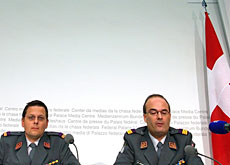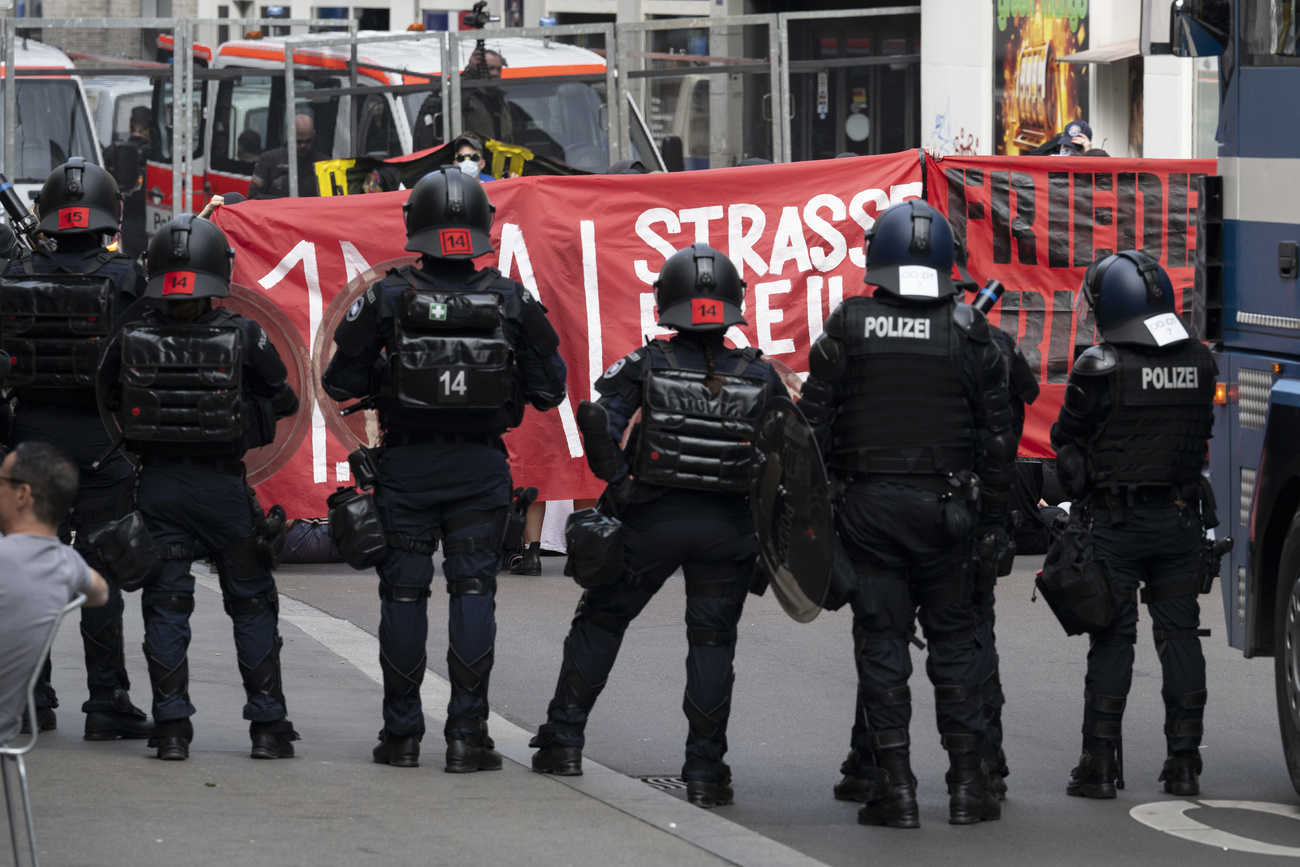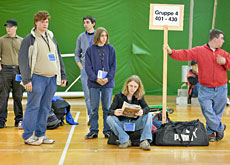Army blasts media over Jungfrau deaths

Military investigators, under fire for their information policy, have accused the media of spreading uncertainty in their reporting of a fatal mountain accident.
In an attempt to provide answers to the deaths of six Swiss soldiers in the Alps two weeks ago, officials said there had been an avalanche near the accident site. But it was still unclear whether it was the direct cause.
Martin Immenhauser, spokesman for the military justice department, said the military investigators appreciated the desire for a swift explanation of what happened, but he said they were also obliged to follow military criminal proceedings and the legal code of practice.
Immenhauser told a news conference in Bern that there must be no rush to make judgements and that people should keep in mind the presumption of innocence and impartiality on the part of the investigating authorities.
He added that he did not want to comment on the army’s information policy, saying it was “nothing to do with the military justice department”.
The army has handed over the investigation of the accident to this department.
But he believed there was a difference between the authorities being forced to release information on an accident “under pressure from everyone involved” and providing facts in the run-up to a trial.
Immenhauser described as “irksome” comments made by numerous experts who had proffered their opinions to the media regarding the cause of Switzerland’s worst military accident for 15 years almost immediately after it happened.
“These experts, who have determined the situation without knowing the results of the investigation, can now no longer be called as independent witnesses in the event of a trial,” he said.
Criticism of the media
Immenhauser also rebuked parts of the media for creating a firm causal link, as quickly as the weekend after the accident, between an avalanche and the six soldiers’ deaths.
“Had we not reacted in this situation, the impartiality of the investigating authorities could have been called into question,” he said.
Immenhauser and investigating judge Christoph Huber insisted that the independence of the military authorities would not be compromised, saying this was firmly anchored in military criminal law.
At the news conference on Thursday the military justice department said one explanation for the soldiers’ deaths was one soldier falling and pulling the other five who were attached to the same rope with him.
As evidence they cited the comments of a civilian mountain guide and a soldier who was the only eyewitness. The man, who chose to remain anonymous, said he had not seen an avalanche at the moment of the fall.
However, it was also clear that there had been an avalanche near the scene of the accident, so this could not be ruled out.
After the deaths Christophe Keckeis, the head of Switzerland’s armed forces, said he was “100 per cent sure” that the mountain guides had done their jobs perfectly.
Army deputy commander Fred Heer also defended the decision to go into the mountains, saying it was not a “risky job” and that the soldiers had done “what thousands of others do in our mountains”.
Immenhauser added that there had also been improper and unacceptable reports concerning the sequence of events involving the autopsies of the bodies.
Interviews with the survivors and other witnesses and information about snow conditions were due to be completed this week. But a result is not expected until October.
swissinfo with agencies
The Swiss Army has confirmed that 24 army personnel stayed in the Mönchsjoch hut overnight before mountain tours last Thursday in the Bernese Oberland.
Fifteen of them left on a trip up the Jungfrau mountain, with one of them breaking the tour at the Jungfrau saddle because he felt unwell.
Seven others went, as planned, up the Mönch mountain, which is located between the Jungfrau and the renowned Eiger.
The remaining two stayed in the Mönchsjoch hut because they were also not feeling well.
The victims were all part of the Mountain Specialists Division 1 in the Swiss militia army.
To be accepted into the recruit school in Andermatt, members have to fulfil two conditions: completion of a special group leadership course in one of the two fields: ski touring or mountaineering; and obtain marks good to very good in the sport exams that are part of the 3-day conscription to the army.
The main emphasis of training is on avalanche duties, mountain rescue techniques, survival in the mountains, and carrying out redeployment moves in the mountains.
Members of the unit are also taught to act as advisers and trainers.
The unit is expected to be ready to be deployed and operational within 9 hours.

In compliance with the JTI standards
More: SWI swissinfo.ch certified by the Journalism Trust Initiative












You can find an overview of ongoing debates with our journalists here . Please join us!
If you want to start a conversation about a topic raised in this article or want to report factual errors, email us at english@swissinfo.ch.